| |  | | | Peace in Gaza? Latest on the Eastern Med, N. Africa, and Beyond By Winfield Myers ● Oct 08, 2025 Smart Brevity® count: 8.5 mins...2202 words Jonathan Spyer writes that "an effort to implement" Trump's 20-point peace plan in the 75 percent of Gaza Israel controls "appears imminent, regardless of the Islamist group's response. That is, in outline, postwar Gaza is already here." Benjamin Weinthal warns that Israel must not trust Qatar yet again, though, because any Qatari involvement could pave Hamas's way for a return. Aymenn Jawad Al-Tamimi assesses and translates a statement from the Iraqi militia that held and recently released Princeton grad student Elizabeth Tsurkov. Nicoletta Kouroushi urges the U.S. to hold Turkey responsible for its "hostage diplomacy" in occupied northern Cyprus, while Amine Ayoub warns that Tunisia is tilting toward Tehran. We end with articles by Abhinav Pandya on Turkish meddling in Bangladesh and by Michael Rubin, who advises the U.S. to at last recognize Somaliland's independence, stability, and pro-Western culture by establishing an American Institute there modeled on the American Institute in Taiwan. | | Is the War in Gaza Ending? 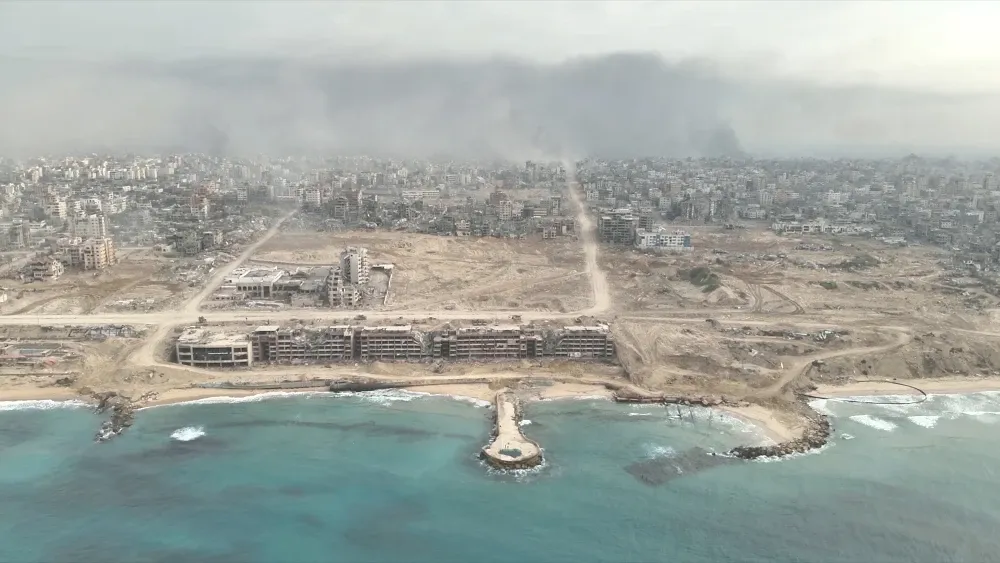 By: Jonathan Spyer President Donald Trump's 20-point plan offers the most realistic chance yet of ending the war that began with the Hamas attack on October 7, 2023. Why it matters: From an Israeli point of view, the plan appears to offer much that Israel has sought in its prosecution of the war, though not without cost. Regional implications: The plan initiates a shift in Middle Eastern geopolitics by backing a coalition of non-Palestinian forces to take charge, potentially sidelining Hamas. -
This approach signals Israel's victory in reshaping the conflict's narrative and securing its territorial and political objectives. -
It could redefine alliances, impacting future peace processes and regional stability. The big picture: With the plan's backing, a new governance structure in Gaza is proposed, allowing for international oversight and Palestinian Authority reforms. What's next: Hamas's response will now determine if the war ends, and if the plan will be implemented throughout Gaza. -
But an effort to implement it in at least 75 percent of Gaza appears imminent, regardless of the Islamist group's response. That is, in outline, postwar Gaza is already here. To read the full article, click here. | | A Qatari Role in a Post-War Gaza Would Mean the Restoration of Hamas Power 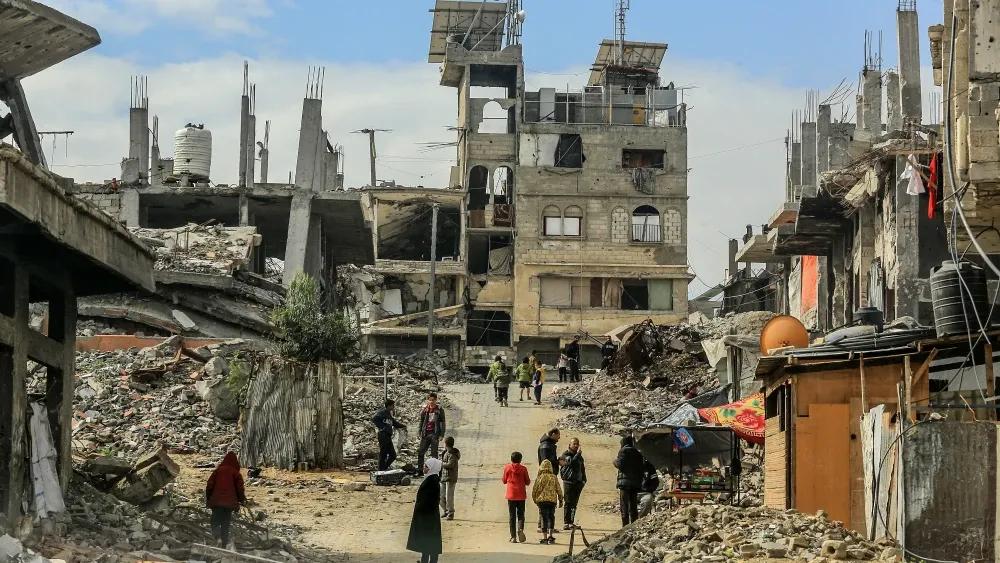 By: Benjamin Weinthal Qatar's financial support was crucial for Hamas to execute the October 7, 2023, massacre in southern Israel. Why it matters: Israel's airstrike on Hamas leaders in Qatar underscores the recognition of Qatari terror-financing as a key enabler of Hamas's actions. The big picture: Despite pressures, Qatar remains a staunch supporter of Hamas, refusing to evict its leaders or condemn their actions. What's next: As Israel and the U.S. discuss Gaza's future, Qatar's potential role in reconstruction is controversial. To read the full article, click here. | | Reminder – The Forum Roundtable: Islamism, Israel, and the Decline of Western Civilization – Friday, 10/10/2025  When:
Friday, October 10, 2025
11:30 a.m. Eastern Time Description: Across the West—from North America to Europe and Australia—antisemitism is rising alongside the spread of radical Islam. For Islamists, Jews are the first target, Christians the next, and Western civilization the ultimate prize. Yet Western leaders remain blind—or complicit—through permissive immigration, weak enforcement, and speech laws that hasten decline. As Israel fights for its survival, can the West still defend the Judeo-Christian foundations that once made it strong? Josh Hammer is the senior editor-at-large at Newsweek and the author of Israel and Civilization: The Fate of the Jewish Nation and the Destiny of the West. Danielle Pletka is a writer and a distinguished senior fellow in Foreign and Defense Policy Studies at the American Enterprise Institute. Lee Smith is a journalist and columnist at Tablet Magazine and the author of Disappearing the President: Trump, Truth Social, and the Fight for the Republic. Lauri Regan is vice president and treasurer of Scholars for Peace in the Middle East. To register for the webinar, click here. | | Kata'ib Hezbollah Official on Elizabeth Tsurkov's Detention and Release in Iraq 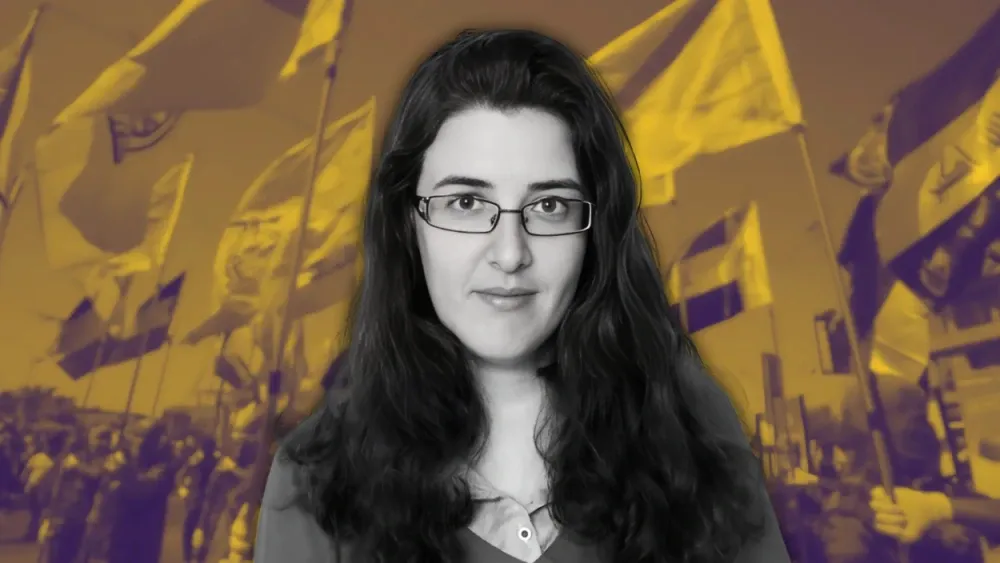 By: Aymenn Jawad Al-Tamimi Last month, U.S. president Donald Trump made the sudden announcement that Israeli-Russian researcher Elizabeth Tsurkov—a doctoral student at Princeton University—had been released in Iraq, following more than two years of detention when she was kidnapped in Baghdad. Trump named Kata'ib Hezbollah—one of the leading "pro-resistance" factions in Iraq, with brigades on the Popular Mobilization Forces Commission—as responsible for the abduction. Why it matters: The incident underscores the geopolitical complexities in Iraq, with implications for international relations and security dynamics. What's next: As tensions simmer, the role of Kata'ib Hezbollah and other groups in Iraq's future remains a critical concern. Translation insights: Kata'ib Hezbollah released a statement, translated by Aymenn Jawad Al-Tamimi, that sheds light on the group's perspective and strategic intentions. -
Al-Tamimi writes that the claim that should be taken with a grain of salt is the notion that she was working to bring Hay'at Tahrir al-Sham to power in Syria: in reality, Tsurkov and other researchers who urged engagement with HTS prior to the overthrow of the Assad regime were not suggesting support for HTS to overthrow Assad. Implications: The translated statement makes no mention of a prisoner swap with Israel—a claim that has been raised in some media reports but is so far not corroborated. This suggests to Al-Tamimi that there was no prisoner swap involved. -
Princeton should not have approved for her to conduct research trips within federal Iraq, if it did so: risks to her own safety aside, given her high public profile and Israeli nationality, any group seeking to do harm to her would certainly take an interest in finding out who in Iraq had been in contact with her and working with her, exposing them to potential threats and reprisals as well. To read the full article, click here. | | ICYMI: "How Can the Houthis Be Defeated in Yemen?" with Summer Ahmed The Houthis (Ansar Allah), entrenched in Yemen's highlands and backed by Iran, have resisted years of military campaigns and efforts to dislodge them through diplomacy. Controlling key territory, including the Yemeni capital and a large part of the coastline, and exploiting the humanitarian crisis, they wield growing power and regional influence. The Houthi campaign against shipping on the Gulf of Aden-Red Sea route has effectively shuttered a key global maritime artery. Can local resistance, regional unity, and international resolve finally defeat them, or is Yemen fated to remain an arena for endless conflict? Summer Ahmed is a researcher and analyst of the Middle East. Yemen-born, she is the Yemeni Southern Transition Council's Foreign Affairs Representative to the United States. She holds a BBA from Northwood University. To watch the full podcast episode, click here. | | How Should Washington Respond to Hostage Diplomacy in Cyprus? 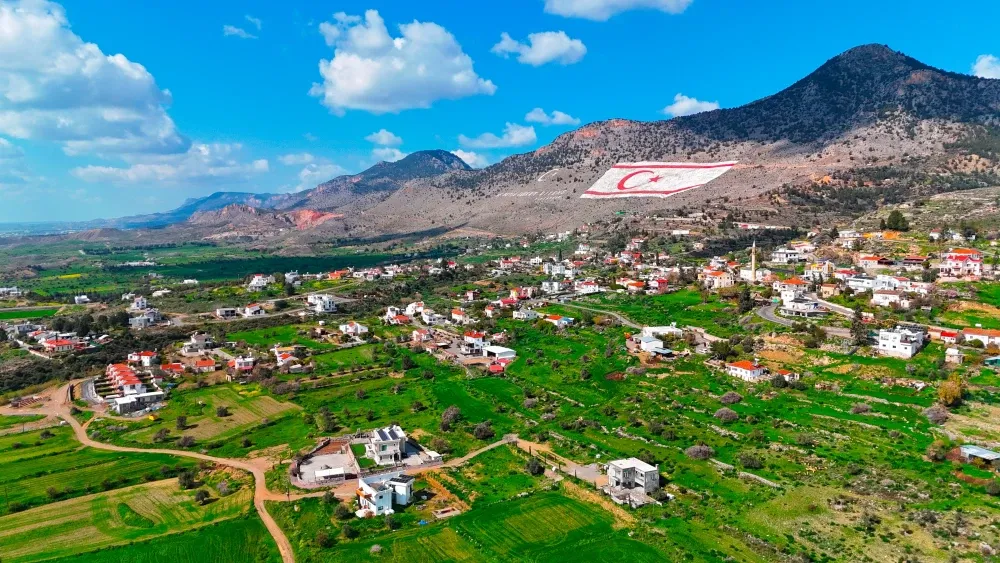 By: Nicoletta Kouroushi Two months ago, Turkish Cypriot authorities, under Ankara's influence, detained five Greek Cypriots in the occupied north of Cyprus, accusing them of espionage as they visited dispossessed properties to which they had deeds. Why it matters: These politically motivated detentions highlight Turkey's aggressive use of hostage diplomacy to exert control and manipulate geopolitical outcomes in the Eastern Mediterranean. The big picture: Turkey's actions mirror its past strategies, such as the unjust detention of American pastor Andrew Brunson, to gain diplomatic concessions through coercion. What's next: Members of the Congressional Hellenic Caucus have called on the U.S. to take a firm stance against Turkey, demanding the release of the detainees. -
A decisive response from Washington is crucial, as inaction would embolden Turkey's aggressive tactics, potentially escalating tensions and compromising U.S. principles in the region. -
Whether President Donald Trump and Rubio realize it or not, the choice now is about whether the U.S. defines its policy in the Eastern Mediterranean by principle or by tolerance of coercion. To read the full article, click here. | | Tunis Is Turning to Tehran—This Is What Washington Should Do 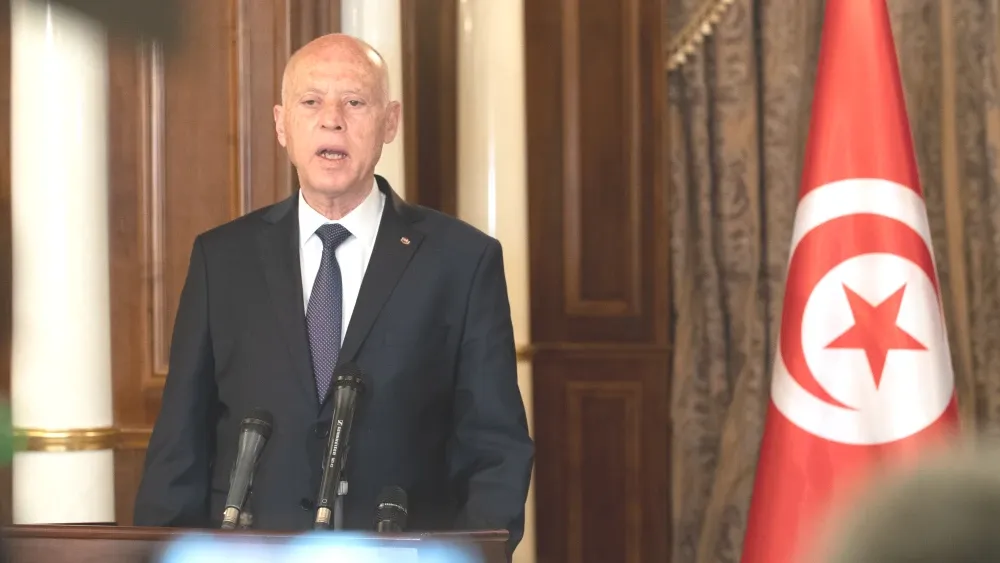 By: Amine Ayoub President Kaïs Saïed's engagement with Iran marks a contentious shift in Tunisia's foreign policy, prioritizing short-term economic gains over long-standing Western alliances. Why it matters: This pivot undermines Tunisia's traditional partnerships with Europe and the West, potentially eroding democratic principles and security cooperation in the region. The big picture: Tunisia's economic desperation has driven it towards unorthodox alliances, sacrificing transparency and governance for quick financial relief from Iran. What's next: For the U.S., the challenge is to counter Tunisia's drift with strategic investments that reinforce democratic values and economic stability. To read the full article, click here. | | Turkish Islamists See Bangladesh as a Stepping Stone Toward Islamist Insurgency in India 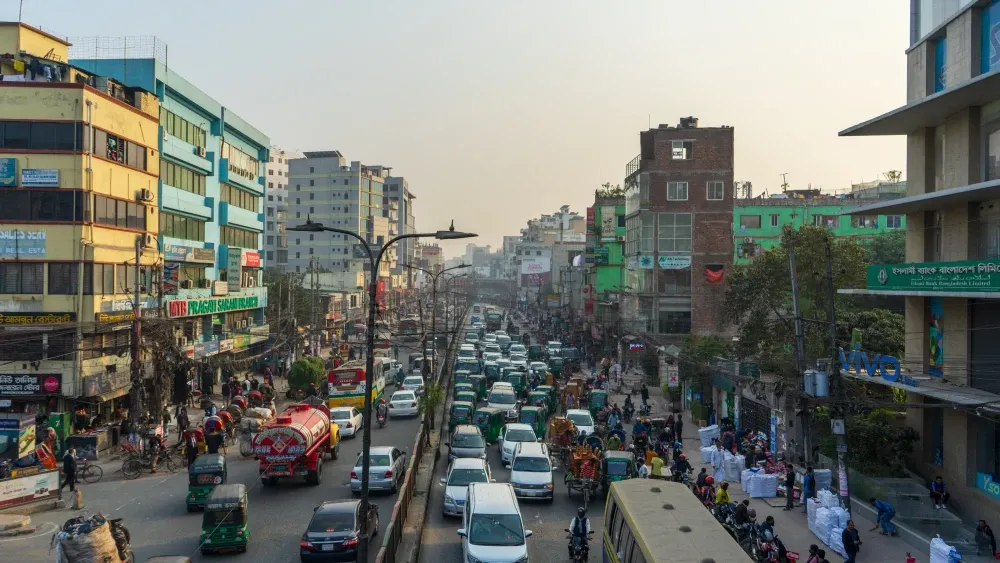 By: Abhinav Pandya Bangladesh has emerged as a hotspot for Turkey's Islamist ambitions, fueled by an alliance with Pakistan's Inter-Services Intelligence and Jamaat-e-Islami to destabilize India. Why it matters: This new alliance facilitates the flow of funds, arms, and radical ideology, aiming to undermine India's security and regional stability. The big picture: Turkey's defense collaborations with Bangladesh, including arms sales and the establishment of defense complexes, signal a strategic push to expand its geopolitical influence. -
Following the ousting of Sheikh Hasina, its elected prime minister, Bangladesh sees a resurgence of Islamist groups like Ansarullah Bangla and Lashkar-e-Taiba, benefiting from Turkish support. -
Turkey-backed initiatives, such as NGOs promoting narratives of Greater Bangladesh, heighten regional tensions. What's next: The U.S. must recognize Turkey's global Islamist outreach, which now complicates American and Israeli security interests in South Asia. Strategic challenge: The collaboration between Turkish and Pakistani intelligence in Bangladesh poses a long-term risk to India's northeastern region, already vulnerable to insurgencies. -
Turkey's influence, coupled with Pakistan's support, threatens to destabilize the region, complicating Indo-Bangladeshi relations and challenging territorial integrity. To read the full article, click here. | | State Department's Model for Somaliland Should Be Taiwan, Not Kurdistan 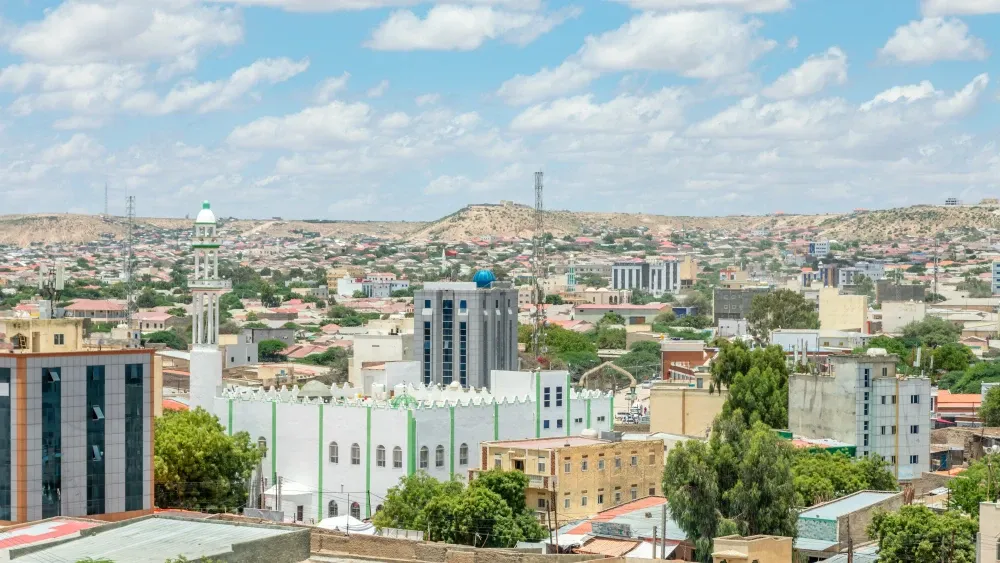 By: Michael Rubin The Congressionally-mandated review of U.S. policy towards Somaliland highlights the need for a strategic shift in the State Department's approach. Why it matters: For decades, the State Department's "One Somalia" policy funneled billions into a corrupt government, inadvertently advancing China's interests over Washington's. The big picture: Somaliland has functioned as an independent state for longer than it was part of any union with Somalia. -
Somaliland is also far more successful than Somalia; it is quickly becoming the region's Silicon Valley while Somalia is, well, Somalia. -
The proposal to open a consulate in Hargeisa risks perpetuating flawed policies and neglecting Somaliland's unique status. What's next: A more effective model is the American Institute in Somaliland, akin to the Taiwan strategy, allowing diplomatic presence without compromising U.S. interests. Strategic challenge: Establishing an American Institute would provide the U.S. with better regional intelligence and align policy with democratic values, avoiding the pitfalls of current consulate plans. To read the full article, click here. | | | | | Thank you for relying on the Middle East Forum for up-to-date analyses of the region. If you enjoyed this issue of the MEF Dispatch, please forward it to a friend. We invite you to use the comments feature to let us know your thoughts on the Dispatch and the issues we cover. Sincerely, Winfield Myers
Managing Editor, Middle East Forum
Director, Campus Watch | | | | Was this edition useful?  

Your email will be recorded and shared with the sender |        MEF, an activist think tank, deals with the Middle East, Islamism, U.S. foreign policy, and related topics, urging bold measures to protect Americans and their allies. Pursuing its goals via intellectual and operational means, the Forum recurrently has policy ideas adopted by the U.S. government.
Copyright © 2024 Middle East Forum, All rights reserved.
Our mailing address is:
Middle East Forum
1650 Market Street, Suite 3600
Philadelphia, PA 19103 | | | | | Powered by 
| | This email was sent by Middle East Forum via Axios HQ | | | |
0 коммент.:
Отправить комментарий